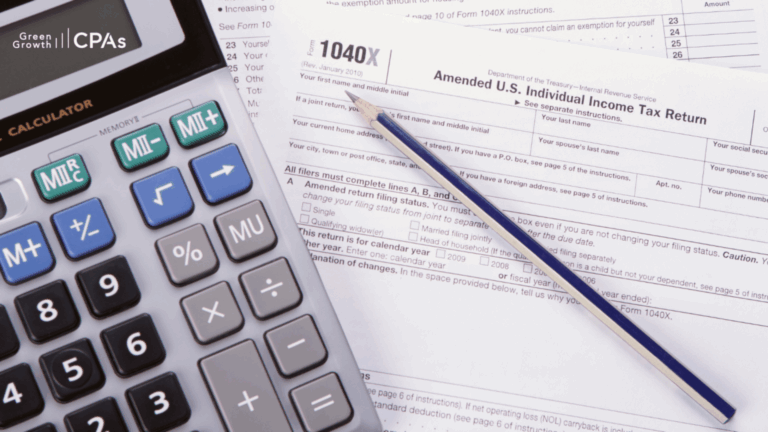In today’s digital age, cybersecurity is crucial for businesses of all sizes. For small businesses, protecting sensitive tax and financial information is not only vital for their operation but also for maintaining client trust. This GreenGrowth CPAs article explores essential cybersecurity measures to safeguard your business’s sensitive data and ensure compliance with data protection regulations.
The Importance of Cybersecurity for Small Businesses
Small businesses often underestimate the value of cybersecurity, thinking they are too small to be targeted by cybercriminals. However, this misconception can lead to severe consequences. Cyberattacks on small businesses can result in significant financial losses, legal penalties, and damage to the business’s reputation. Protecting sensitive tax information should be a top priority for every business.
Key Cybersecurity Threats to Small Businesses
Understanding the common cybersecurity threats is the first step in protecting your business. Some of the prevalent threats include:
- Phishing and Spearphishing: Cybercriminals use deceptive emails to trick employees into providing sensitive information. Small businesses are often targeted in Form W-2 scams where identity thieves pose as company leaders to obtain employee data.
- Ransomware: Malicious software that encrypts data, demanding payment for its release.
- Data Breaches: Unauthorized access to sensitive information, leading to potential misuse of data.
Implementing Robust Cybersecurity Measures
To protect sensitive tax information, small businesses must implement robust cybersecurity measures. Here are some actionable steps:
1. Conduct Regular Risk Assessments: Perform regular risk assessments to identify vulnerabilities in your systems. This will help you prioritize security measures and address potential threats before they become serious issues.
2. Use Strong Passwords and Multi-Factor Authentication (MFA): Encourage the use of strong, unique passwords for all accounts and implement multi-factor authentication. A strong password is at least 12 characters that are a mix of numbers, symbols and capital and lowercase letters. Never reuse passwords and do not share them on a phone, in texts or by email. Limit the number of unsuccessful log-in attempts to limit password-guessing attacks.
3. Encrypt Sensitive Data: Ensure that all sensitive tax and financial data is encrypted, both in transit and at rest. Encryption makes it difficult for unauthorized parties to read the data even if they gain access to it. We also recommend backing up important files offline or in the cloud.
4. Train Employees on Cybersecurity Best Practices: Employees are often the weakest link in cybersecurity. Regular training sessions can educate them on recognizing phishing attempts, safe browsing practices, and the importance of data protection.
5. Keep Software and Systems Updated: Regularly update all software and systems to patch known vulnerabilities. Cybercriminals often exploit outdated software to gain access to sensitive information.
6. Implement a Firewall and Antivirus Software: A firewall can prevent unauthorized access to your network, while antivirus software can detect and remove malicious software before it causes harm.
7. Have a Data Breach Response Plan: Have a plan for saving data, running the business and notifying customers if there is a data breach. The Federal Trade Commission’s “Data Breach Response: A Guide for Business” provides steps a business owner can take in the event of a cyber breach.
Complying with Data Protection Regulations
Compliance with data protection regulations is essential for avoiding legal penalties and maintaining client trust. Some key regulations to be aware of include:
- General Data Protection Regulation (GDPR): This regulation affects businesses that handle data of EU citizens, requiring them to implement strong data protection measures and provide clear privacy policies.
- California Consumer Privacy Act (CCPA): This act protects the privacy rights of California residents, giving them more control over the personal information that businesses collect about them.
- Payment Card Industry Data Security Standard (PCI DSS): This standard applies to businesses handling credit card information, mandating specific security measures to protect cardholder data.
Ensure your business complies with these regulations by implementing the necessary security measures and regularly reviewing your compliance status.
IRS Recommendations and Resources
The IRS offers several resources to help protect sensitive tax information:
- Identity Theft Central: Provides information on reporting identity theft and steps to take if you suspect your business is a victim.
- Form 14039-B, Business Identity Theft Affidavit: Allows businesses to report possible identity theft to the IRS.
- Reporting Phishing and Other Scams: The IRS provides information on what to look out for and how to report it. Businesses can also report scams by sending the suspicious email or a copy of the text message as an attachment to phishing@irs.gov.
- Keeping Your Employer Identification Number (EIN) Application Information Current: Changes of address or responsible party may be reported using Form 8822-B, Change of Address or Responsible Party – Business.
- Reporting to the Treasury Inspector General for Tax Administration (TIGTA): Taxpayers can report scams to TIGTA or the Internet Crime Complaint Center.
- Smartphone Security Checker: A tool provided by the Federal Communications Commission to enhance smartphone security.
- IRS Whistleblower Office: Depending on the scam in question, business owners and individuals may send information to the IRS Whistleblower Office for a possible monetary award.
Final Thoughts
Cybersecurity is a critical aspect of protecting your small business’s sensitive tax and financial information. By implementing robust security measures and complying with data protection regulations, you can safeguard your business from cyber threats and build trust with your clients. At GreenGrowth CPAs, we provide tailored services for helping businesses with their tax and financial management.
Book a free consultation today to learn how we can assist your business.



